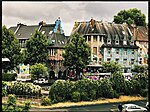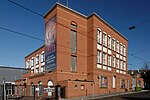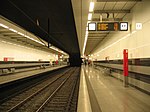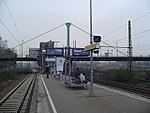Düsseldorf-Flingern station
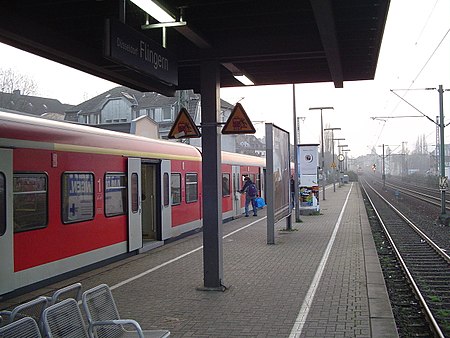
Düsseldorf-Flingern station is a through station in the district of Flingern in the city of Düsseldorf in the German state of North Rhine-Westphalia. The station was opened on 29 May 1988 on the new line opened by the Prussian state railways on 1 October 1891 between the Hamm Railway Bridge and Gerresheim as part of the construction of Düsseldorf Hauptbahnhof. It has two platform tracks and it is classified by Deutsche Bahn as a category 5 station.The station is served by Rhine-Ruhr S-Bahn lines S 8 between Mönchengladbach and Wuppertal-Oberbarmen or Hagen every 20 minutes, S 28 between Mettmann Stadtwald or Wuppertal Hauptbahnhof and Kaarster See every 20 and several S 68 services between Wuppertal-Vohwinkel and Langenfeld in the peak hour.It is also served by two tram lines: 706 and 709, operated by Rheinbahn at 10-minute intervals.
Excerpt from the Wikipedia article Düsseldorf-Flingern station (License: CC BY-SA 3.0, Authors, Images).Düsseldorf-Flingern station
Dorotheenstraße, Dusseldorf Flingern Süd (Stadtbezirk 2)
Geographical coordinates (GPS) Address Nearby Places Show on map
Geographical coordinates (GPS)
| Latitude | Longitude |
|---|---|
| N 51.226211 ° | E 6.811489 ° |
Address
Dorotheenstraße 92
40235 Dusseldorf, Flingern Süd (Stadtbezirk 2)
North Rhine-Westphalia, Germany
Open on Google Maps


